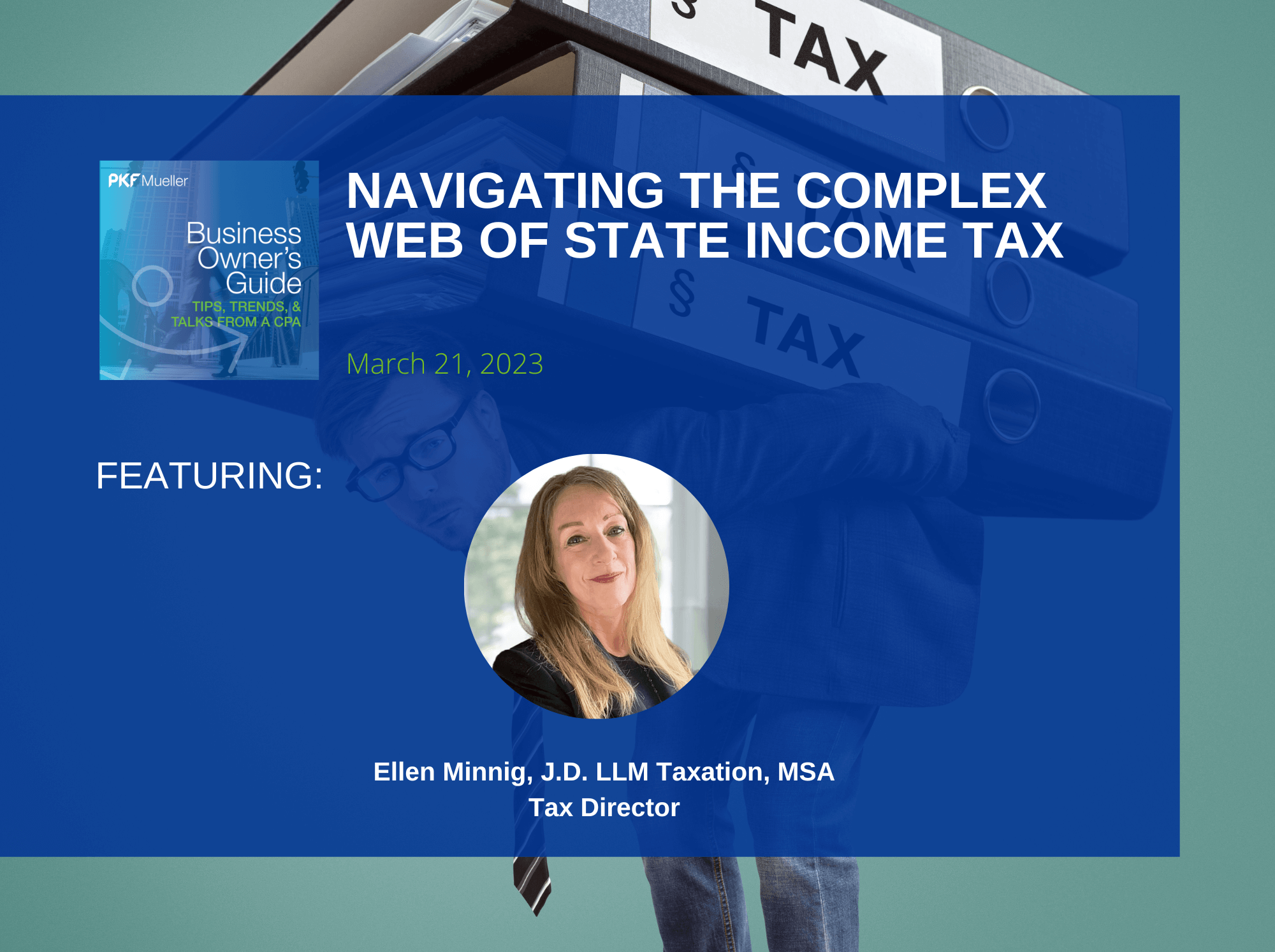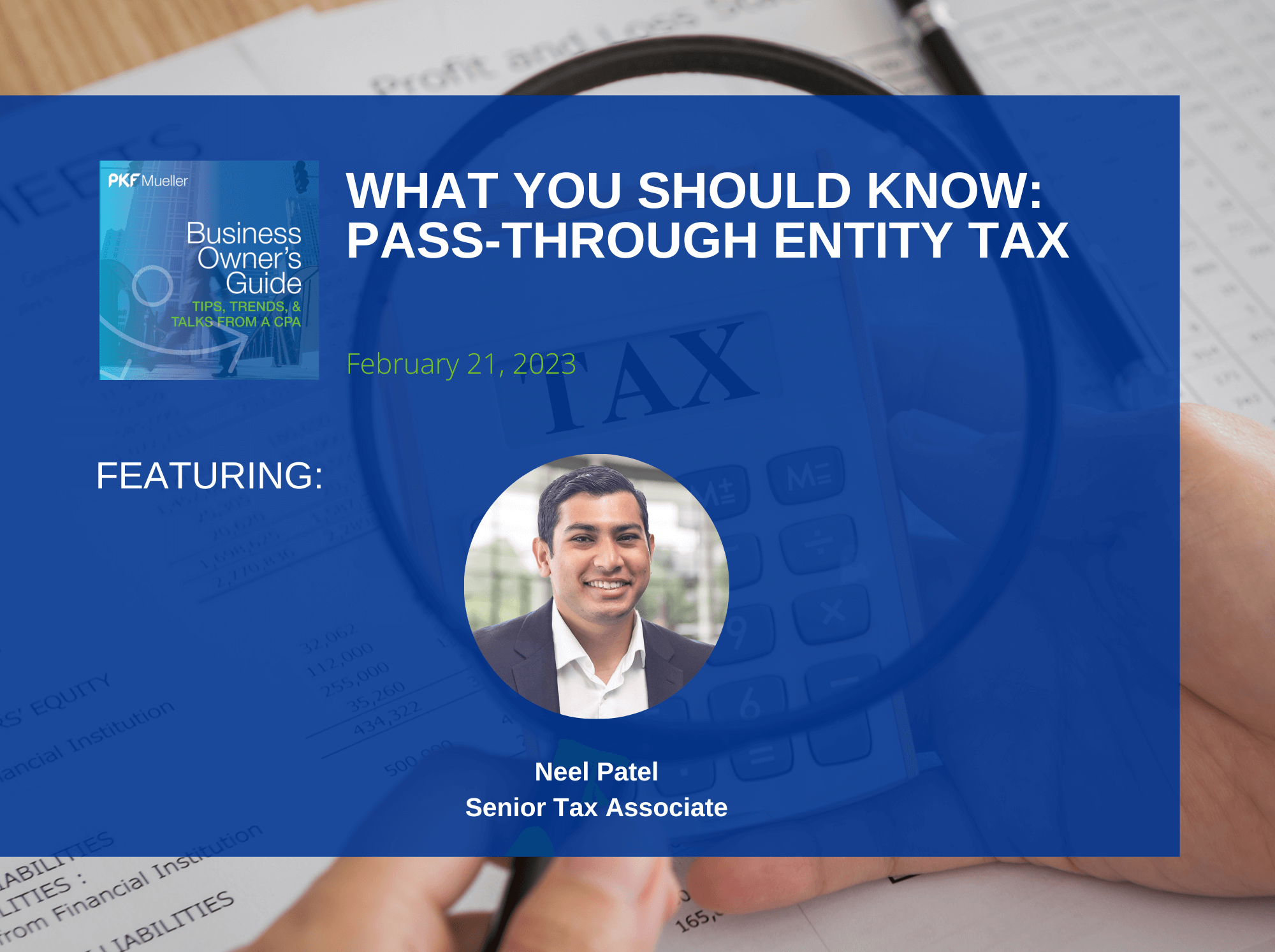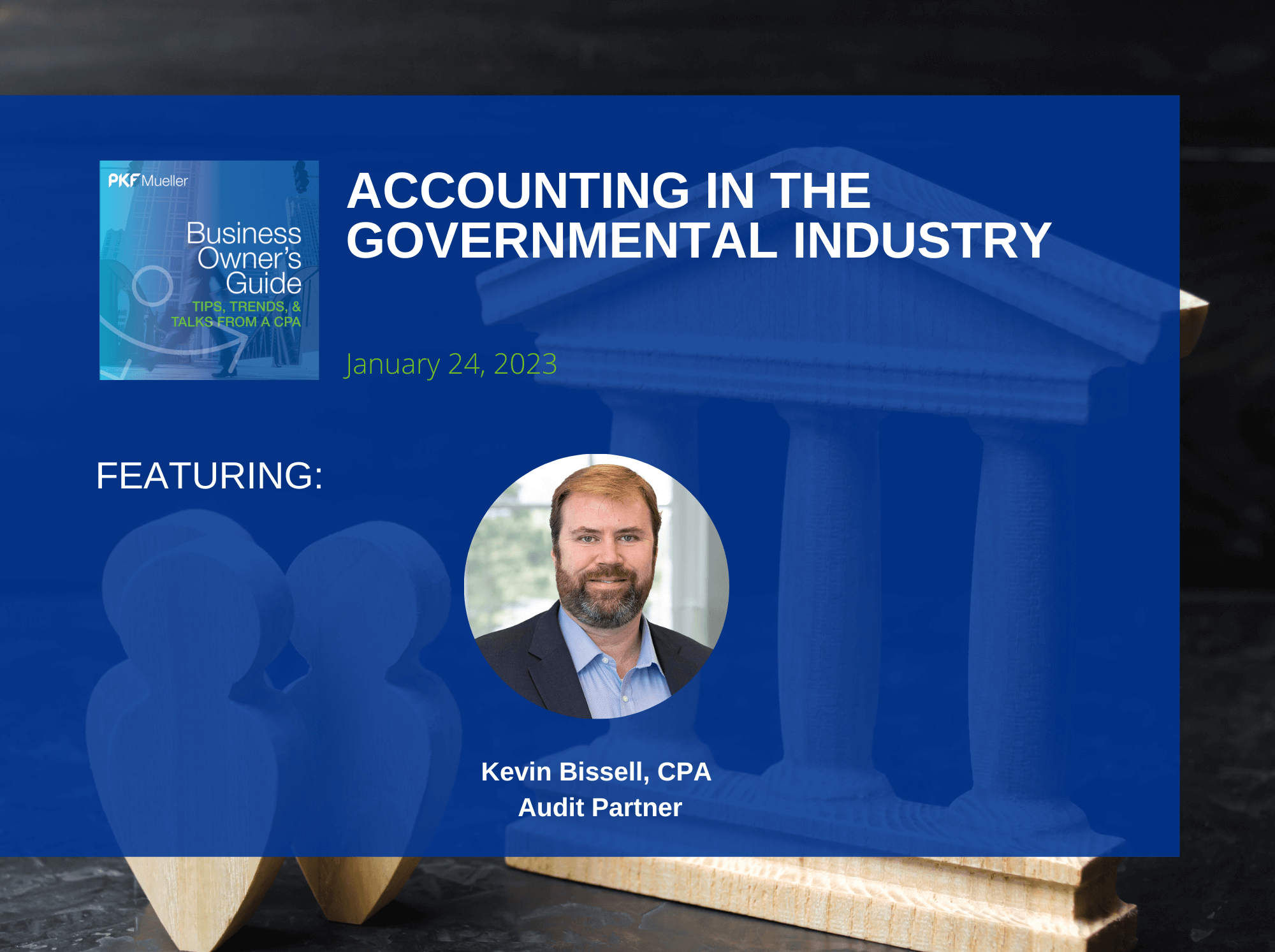PKF Mueller recently announced their strategic partnership with Transparent Energy to offer clients electricity, natural gas, and green power procurement value-added services.
Join guest speaker, Eric Wyman, Business Development Manager (Transparent Energy) to talk about these services, as well as where the current energy market stands.
LISTEN NOW:
For more information, case studies, and upcoming webinars, visit https://pages.transparentedge.com/pkf or email, pkfmuellerservices@pkfmueller.com.

Eric Wyman
Business Development Manager
ewyman@transparentedge.com
EPSIODE TRANSCRIPT:
[00:00:00] Emily: Hi, I’m Emily and you’re listening to the Partner Series, a PKF Mueller podcast. Today we’re going to talk about using process and technology to maximize your energy contracts, as well as talk about the current energy market with Eric Wyman of Transparent Energy.
PKF Mueller recently announced that it is now powered by Transparent Energy to provide value added energy services to its clients. PKF Mueller strategically partners with companies like Transparent Energy to further support our mission of enhancing the lifetime success of our clients through innovative financial, accounting, and business management services across a wide variety of industries.
But before we officially dive in today’s discussion, let’s get to know our guest.
Eric Wyman is a business development manager at Transparent Energy, leading their business development team and their assignments with innovative buying strategies used to manage his client’s energy portfolios and mitigate risk in the market.
He is an experienced professional responsible for providing dynamic energy management services to commercial and industrial businesses with diverse facilities located in deregulated power markets throughout the country.
Eric, thank you so much for joining me today.
[00:01:18] Eric: Thank you for having me, Emily.
[00:01:19] Emily: My pleasure. So, tell me a little bit about Transparent Energy and the connection to PKF Mueller.
[00:01:26] Eric: Yeah, sure. So, Transparent Energy was founded in 2009. We’re a specialized energy procurement advisory firm with, you know, the, the simple goal of procuring, um, inexpensive third party energy for commercial, institutional and, and, uh, governmental customers to really distinguish ourselves from traditional energy brokers. We have about 2200 plus unique customers. We’ve transacted over, you know, 2 billion in energy spend, uh, supply spend through our process and online platform. We’ve created over 110 million in, in value or, or savings for our clients, and we’ve held over, um, 11,000 pricing events through our auction platform.
We’re headquartered in Fairfield, New Jersey, with offices also in Chicago, which I’m out of, and Vero Beach, Florida. We really, you know, we, we utilize the next generation, technology platform, as I like to call them, to, to generate insight, to mitigate risk, create buyer confidence, and improve contract performance.
We started communication with, uh, PKF mueller, after several clients really expressed that they were spending too much on their energy.
[00:02:25] Emily: Great. I wanna talk more about this next gen technology you mentioned. What makes this and Transparent Energy for that matter, so different from other energy procurement services?
[00:02:37] Eric: Yeah, let me, um, first really start with what we’ve seen over the last 12 years from our competitors. Traditionally, uh, that process. What I’ve at least seen and heard from, clients after we kind of have taken them from those competitors, if you will, is, you know, a few suppliers being invited.
Typically, maybe three to four incomplete information, uh, provided, which really creates, uh, supplier uncertainty regarding the buyer’s commitment. There’s really little market intel provided to the customer on when or why they’re actually going to the market. And then for the buyer, it’s really hard to obtain an apples, apples to apples results on the quotes being received because there’s, there’s no real audit trail, with little visibility into competing offers essentially, you know, what was the first bid?
What was the last bid? Maybe the delta between the two? Essentially what, what was the additional intrinsic value, if you will, that they’re providing that, as a, as a client, you couldn’t, hence wise do yourself by contacting those same three to four suppliers.
So again, that’s what we’ve seen over the last 12 years from our competitors. And then, drilling into kind of where we differentiate and how our process is a little bit different is, um, we have a four step process that’ll help garner 7 to 8% better results over what clients have been doing currently.
Whether that’s doing this in-house and or using kind of a third party broker. Again, that, that, uh, the, what you heard previously was more of a, what we call an antiquated process for energy procurement. We kind of tried to revolutionize that with our proprietary platform and process. Um, and that process really first starts with timing the markets.
We wanna look at renewals at minimum 12 months ahead of expiration. By addressing, you know, uh, your renewal early, we really ensure, our clients have the best chance to capitalize on dips in the market and really manage their risk.
Um, the second real step of our process, if you will, um, increase the supplier pool, competing for clients business at minimum two, 300%. When our suppliers come to compete, they know that we’re not really conducting a fishing expedition. They have a ready, willing, enabled buyer, someone on a silver platter.
Our third real step is, you know, we have a live reverse auction platform, which I alluded to earlier, holding those 11,000 events.
These auctions are scheduled for 15 minutes. They have a two minute reset timer if a bid is placed inside of two minutes. Um, it gives everyone a fair and open opportunity to really sharpen their pencils and, and, and rebid, squeeze their margins, if you will, and deliver those results to clients. By utilizing that technology, we can, you know, test the market for various pricing mechanisms, term lengths, green content, renewable energy, essentially, and do so in a very efficient manner.
We’re gonna do all the heavy lifting. Clients are not obligated to transact nor go with the lowest bidder. The clients are always gonna be in control.
And then lastly, on the day of those auctions, we have a 97% close rate, which really eliminates supplier hold premiums. If a supplier, you know, has been conditioned by, you know, other of our competitors to, to hold prices for 24 or 48 hours.
To hold open that price, uh, really a premium is embedded into, into those prices because they have to assume the market’s gonna go up during that, price hold period, if you will. That hold premium is removed from our auctions, which allows our suppliers to compete, you know, a handful more times to really secure the, the client’s business.
[00:05:36] Emily: So, being pretty familiar with the markets then, what does a historical look back at the energy market tell us, and how has the energy landscape changed?
[00:05:46] Eric: Yeah. The energy landscape has changed and it’s just become a lot more volatile. There, there’s a lot more things, on the global stage happening, um, that have really allowed prices to, to increase and become more volatile, in, in a short period of time.
Extreme weather events, kind of being one of them in, in the Gulf. If, if they’re not able to, you know, secure as much natural gas out of the ground, they have to shut down those, those, uh, those plants. That obviously puts, uh, pressure on the supply demand balance. LNG exports is, is a big piece of that.
So liquified natural gas where we’re taking natural gas out of the ground, liquefying and shipping it overseas. Um, there, there’s been kind of a global demand for our liquified natural gas as this we’re moving to, more of a renewable future. Natural gas really has kind of half the emissions of, you know, coal, if you will.
So it’s kind of the natural bridge fuel between where we are now and the renewable future that, the world kind of is, is pushing for. So that, that puts just a lot of pressure on, uh, again, here, the, the domestic supply demand balance because we’re, we’re exporting more of our own supply. And, uh, you know, it’s, it’s waning supply, if you will.
Demand, you know, is kind of increasing. And that’s, you know, domestically prices have kind of risen pretty, pretty dramatically coupled with, you know, the Russian Ukrainian conflict where now, um, we’re trying to fulfill the need for the European Union to, you know, fill their, storage, uh, ahead of winter, which we successfully did, which allowed prices to, you know, increase by about 200%.
And then, uh, yeah, just the European and Asian energy crisis really. So, you know, this has become more of a global conflict, and, US energy prices, uh, are kind of feeling the, the brunt of it, unfortunately.
[00:07:25] Emily: What do you think this means for customers more specifically when it comes to their energy contracts?
[00:07:31] Eric: Yeah, I, I think customers really need to determine how they’re gonna be planning on mitigating risk going forward. A traditional process, that I discussed earlier. You’ve been able to get, you know, away with that for the last 10 years because we’ve had extremely low prices due to just the, the increase in technology and fracking, um, here domestically.
So instead of just going, um, vertically, we can now go horizontally. So for the last decade, prices have been pretty suppressed because we’ve just had oceans and oceans of natural gas, at our fingertips.
And I know I’m talking about a lot, lot of natural gas here, but the reason we, we talk about natural gas is we, we want to get to, you know, natural gas is the primary power source of generations. So we wanna look to natural gas prices to really get context into what electricity prices are gonna be doing and trending moving forward.
So, you know, again, part of our, part of our process and the majority of our process is really determined on market timing. If you’re going to the market at the right time.
Traditionally, people would go to market maybe one to two months ahead of expiration because it was just the next thing on their list to kind of accomplish. And again, you’ve been able to get away with that for the last decade, but gone are those times, unfortunately, with the volatility we’ve seen in the energy markets.
[00:08:42] Emily: And how often would a company need to go to market?
[00:08:45] Eric: Good question. Traditional term lengths, 12 24, 36, maybe 48 months. You know, again, historically people have just gone to market, one to two months, have had ahead of exploration, or they’re trying to buy during what are called shoulder periods.
Those are somewhat vanished and evaporated in the energy landscape over the last couple of years. Shoulder periods would be like spring and fall, right? There’s not as much demand on the grid, people aren’t heating or cooling their homes, maybe they’re opening their windows. Same with businesses.
So, gone unfortunately, are those those times. So, what we really try and do is we try and look at, uh, the supply demand balances. What the future’s data is telling us? Uh, rig counts that basically how much natural gas they’re trying to pull out of the ground. What is the, the prices in the European and Asian markets, what’s that gonna do to do our prices here domestically?
So there’s just now more variables that need to be considered, to, to create that risk mitigation strategy rather than going to market because it’s out of convenience. Um, there needs to be a strategy in place to really mitigate risk, that that’s the biggest piece alone about energy procurement.
That’s the number one kind of step of our process.
[00:09:45] Emily: Yeah. And how has Transparent Energy helped mitigate risk in the energy market for PKF Mueller clients specifically? Do you have any case studies regarding that?
[00:09:55] Eric: Yeah, absolutely. I think, one of my best auctions, was a PKF Mueller client, uh, we held in the latter portion of 2022.
We had about 10 suppliers come to compete, for that customer’s business, um, which was actually really good in that, in that market. It’s not as liquid of a market. It was in Southern Illinois. There’s maybe 15 total suppliers there that we, um, are, are partnered and papered with, in the ComEd territory where I’m speaking from today in the PKF Mueller office here in Elgin.
This is the ComEd territory, so there’s about 20, it’s almost, you know, five to 10 more suppliers can actually come and participate in ComEd. So this is in Southern Illinois. Again, these auctions are scheduled for 15 minutes, um, with a two minute reset timer. This, with those 10 suppliers, there was 376 unique bids over a 55 minute period.
Something you just can’t do haggling over the phone, or, or over email. Um, and, and we saved the customer over a million dollars over the, the 36 month term.
[00:10:50] Emily: About how long would an overall auction take place?
[00:10:53] Eric: So our auctions in 2022, we average about 23 minutes was our average auction.
So, that two minute reset timer was enacted, you know, a a handful of times. So yeah, this one was very competitive. It was a very large load. You know, we only work with large energy users. Generally, if you’re spending a quarter of a million or more, annually on the supply spend, uh, whether it’s natural gas or electricity.
So, larger the clients. Generally, that means that, you know, suppliers are willing to compete, lower their margins, and, uh, you know, we’re here to help secure those, uh, low prices for our clients.
[00:11:25] Emily: Perfect. Eric, any final thoughts or piece of advice for PKF Mueller clients who are facing high energy costs right now, as well as any clients whose contracts are expiring soon?
[00:11:38] Eric: Yeah, absolutely. So, you know, no one can really outsmart the market. We, nor you can really influence the market to move in a favorable direction. So, hoping that the market moves down is, is not really a good strategy. You know, the good news is our procurement process can save you seven to 8% over what you’re doing currently, whichever way the market moves.
So this isn’t seven to 8% savings contract over contract. This is seven to 8% better results by implementing our four step process for energy procurement.
[00:12:06] Emily: Well, we are very excited to be working with Transparent Energy. Eric, thank you so much for taking the time to introduce Transparent Energy and Energy Procurement as a value added service to our clients.
[00:12:18] Eric: Yeah. Thanks for having me, Emily. On behalf of Transparent Energy, I’m very excited to, to provide PKF Mueller clients with the opportunity for energy savings.
[00:12:25] Emily: If any of our listeners have any questions or like to find out more information about these added value energy services, would you please share your contact information with us, Eric?
[00:12:35] Eric: Yeah. Please feel free to reach out to me at ewyman, w y m a n @transparentedge.com, or give me a call on my cell phone. Happy to talk at (630) 345-0995.
And if you have an energy contract, natural gas, or electricity expiring in the next 12 to 18 months, I’d be happy to provide an analysis for you to really see what your next procurement event could look like and what the budgetary impact would be.
And again, thank you for having me on your podcast.
[00:13:06] Emily: And thank you for listening. To learn more about how to mitigate risk and garner savings with a more efficient energy procurement process, contact pkfmuellerservices@pkfmueller.com. That’s PKFMuellerServices@PKFMueller.com.
You can also follow PKF Mueller on social media for more updates, insights, and upcoming events.



